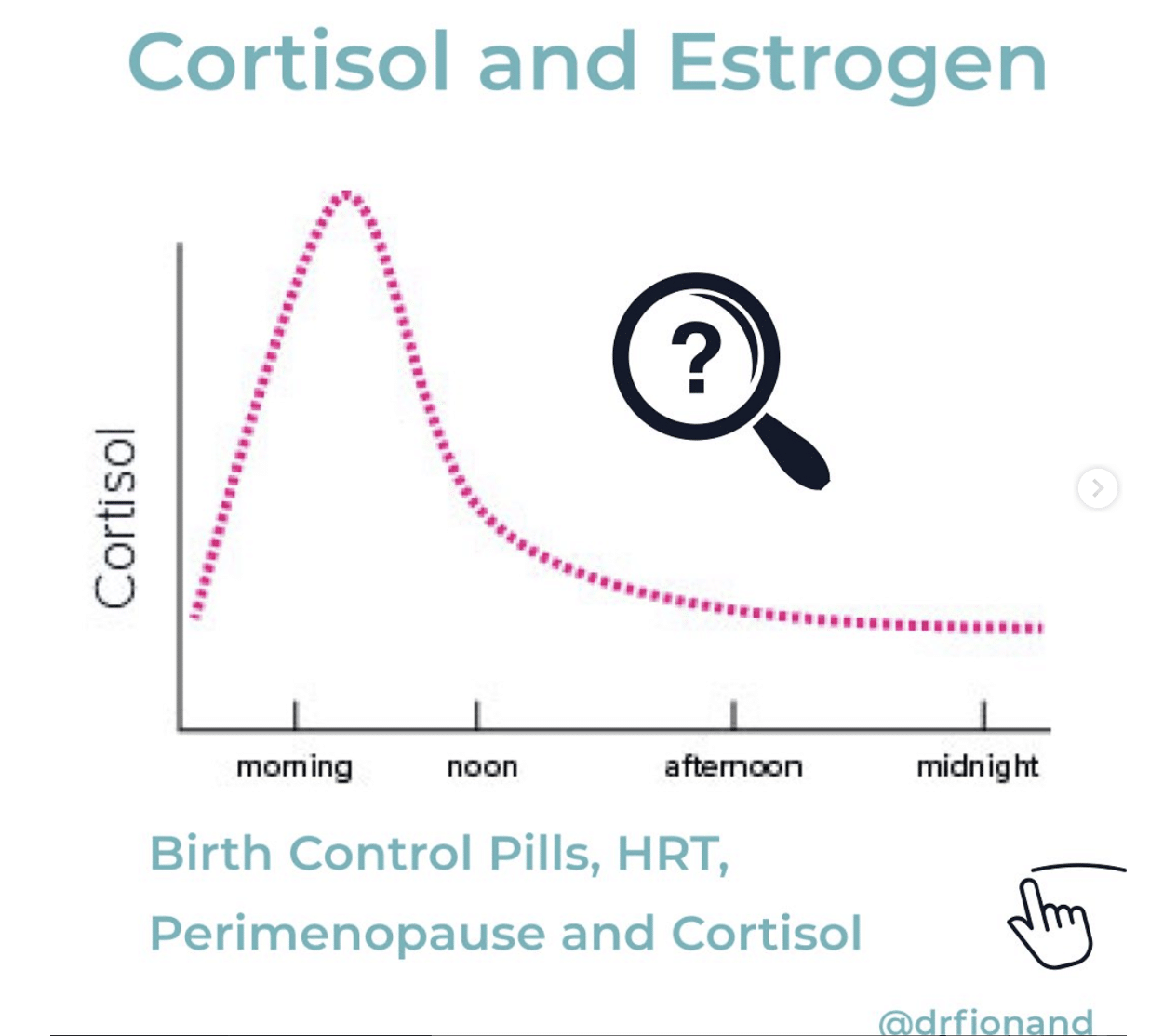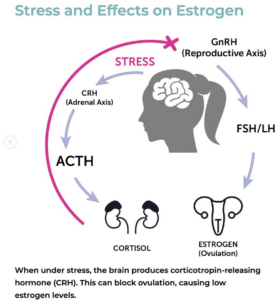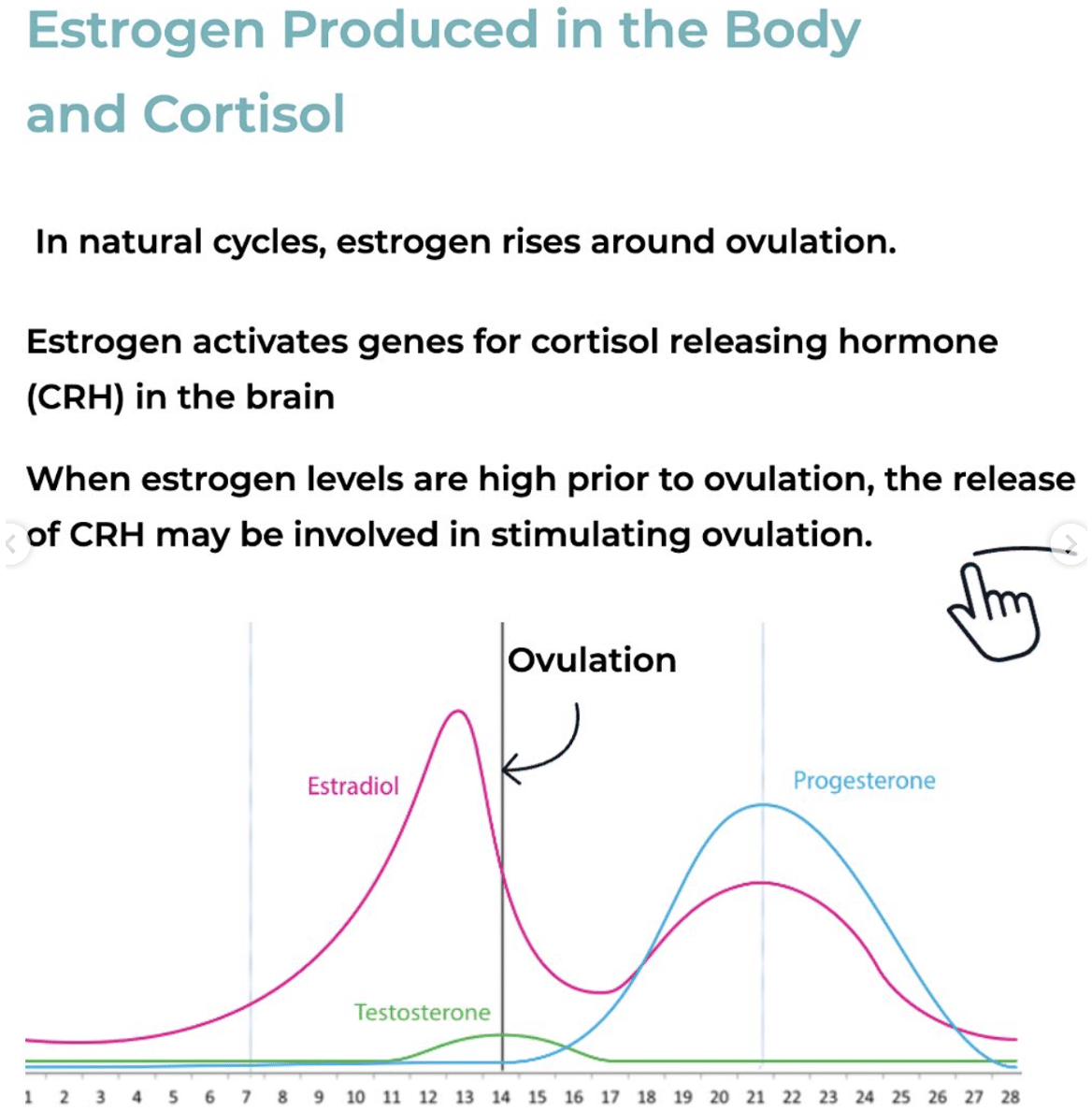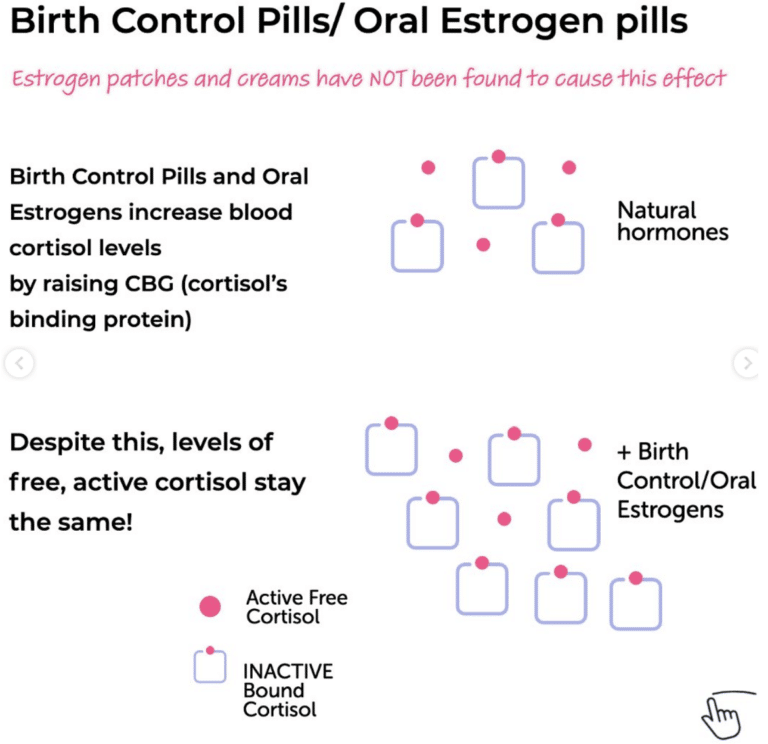How does cortisol relate to estrogen….what about Birth Control Pills, HRT and perimenopause?
It’s clear that severe chronic stress can block ovulation by affecting a brain hormone: GnRH. Since estrogen is made as the egg prepares for ovulation, stress can cause low estrogen levels!
Birth Control and Oral Estrogen Meds
When estrogen is taken as an oral medication (birth control and older forms of HRT) it goes through “liver first pass” and as a result has specific effects.
- Oral estrogens raise cortisol binding protein (CBG) causing blood tests for cortisol to look higher.
- One study found that taking oral estrogen raised cortisol levels in blood by 67%.
- Blood testing for cortisol = bound cortisol (inactive) + “free” cortisol (active)
- On birth control/oral estradiol even though the TOTAL amount of cortisol in blood is higher, free/active cortisol does not seem to be affected.
- ❗Transdermal estradiol (patches/creams) do NOT seem to have this effect – they don’t go through liver first pass!
Natural Irregular Estrogen Production
In certain scenarios (hi,perimenopause) there are random spikes of estradiol that are extremely high and random drops to almost zero.
- Estradiol can activate CRH (cortisol releasing hormone).
- Ovulation is a highly coordinated process. The cells that surround the egg produce estrogen as they grow in preparation for ovulation. Right before ovulation, there is a spike of estrogen.
- Research suggests that temporary activation of CRH/cortisol at this cycle time when estrogen is high, may be involved in ovulation.
- ❗In perimenopause those uncoordinated, random estradiol spikes/crashes can affect cortisol levels. We see a LOT of perimenopausal patients suffering from mental health/stress symptoms. These symptoms tend to be “up and down” and are often described as feeling “physical”
PMID: 8408641, 18045137, 17492949, 19322116, 327982
View my full instagram post here!








